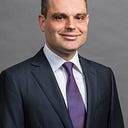Is The Brazilian Liberal Dream Over?
Inequality makes or breaks opportunity in Brazil: a 2017 study from the University of Brasília (UnB) has shown that someone’s grades to attend university is eighty-five percent determined by their socio-economic condition. In these pandemic times, not to cause surprise, a private COVID vaccination scheme under debate. Nothing could be more further away from a meritocratic setting than these realities.
Alien to this reality and overconfident about his boss’s fast-track neoliberal conversion, the Washington Consensus admirer, University of Chicago-trained Economic Minister Paulo Guedes bluntly told reporters in the pre-COVID era: “not to count on us to lower inequality in Brazil.” The plan was to let the market do the job. We have to take his confession in a time frame context: that was the first year of the new government, and Mr. Guedes probably hoped that his reforms would start to show results and bring growth to secure reelection in 2022.
Since early on in the President’s campaign, the financial market played the part of having bought the idea that Mr. Guedes conveyed a message that his boss also believed in. It is worth mentioning that this copious ‘roleplay’ helped unleash a political force that the market neither understands nor can tame: Bolsonaro battleground is not the economy but an ever-present cultural war against evolution. After two years in this ride, Brazil is a star in the neo-traditionalist conservatism band of brothers that just lost the USA. Hungria is now our soulmate.
Nevertheless, the cozy agreement was not working wonders but kept the (Brazilian) neoliberal dream alive; however, not without a generous dose of self-deception. I tagged it a “Brazilian model” because the supposed neoliberal agenda was strangely blended with an amount of right-wing nationalism. Since the USA is years ahead of us in this divisional path, it is worth noting: Republican megadonor Charles Koch, the billionaire industrialist whose untold millions in political contributions stoked the furnace of right-wing politics for the last decade, admits that he “screwed up by being partisan.” It was clear from the beginning that such a marriage was doomed in the USA and should also be clear here. Let’s be smart and learn from other people’s mistakes.
But things were muddy in some minds, and then COVID struck. Mr. Guedes’ slow response to the pandemic in terms of support for the Brazilian economy is deeply rooted in his economic beliefs. His first reaction was to keep pressing for reforms to shield Brazil from the crisis, a strategy that made no sense and was scolded by Congress. In a sense, the government was rescued by Congress when it approved a generous COVID economic support program for families, companies, and government entities.
On the other hand, the President saw the political opportunity; even better, it didn’t mean betraying his real convictions. He took the chance. As a result, he saw his popularity soar among the poor, thanks to the BRL 600 (USD 110) monthly stipend paid by the government to the unemployed and the millions in the informal labor market. The program attended almost seventy million people in nine months and probably made the GINI coefficient drop below 0.50. This level marks the lowest level achieved in more than three decades, albeit it is sustainable.
But that had a price tag, and, not to anyone’s surprise, Brazil had one of the highest public spending's to support the economy related to the GDP. It was the highest among its emerging market peers. This is not to say that government investment is always a bad idea, but these grand schemes understandably have a lousy reputation in Brazil. Dilma’s ‘new economic matrix’ is having a comeback. Lampedusa would be proud.
The economy minister now stands at a crossroads. The inability to control COVID in Brazil and the blunt federal government posture against the vaccines — with no viable plan to start a national vaccination campaign — makes the prospects of a robust economic recovery in 2021 look dim. In this grim outlook, the COVID financial support scheme ended on December 31, 2020, so we should expect to see this reflected in the President’s popularity. It is not an encouraging prospectus to have a political crisis in the middle of an economic one.
There were signs of a tide change in the last months: the sudden departure of two top economic officials in Brazil has dealt a considerable blow to Economy Minister Paulo Guedes: Salim Mattar, Brazil’s privatization secretary, and Paulo Uebel, the de-bureaucratization secretary, left the cabinet last semester after complaining about the lack of support for their plans to a sweep privatization program.
Mr. Paulo Guedes’ only viable option to survive could be to fall in line with his boss and significantly downsize, to say the least, his economic plan since there is no doubt his boss will need some ‘powder’ to keep his political force alive until reelection. It is improbable that the President agrees with a reformist agenda with an immediate contraction effect so close to the elections. The timeframe that Mr. Gueses imagined before COVID is not there anymore.
As Paulo Dalla Nora Macedo concluded after his research that the financial market has to learn to live with this reality. As it failed to decipher the force, it could be devoured by it. In any case, it is advisable to prepare ourselves for a Trump 2020 scenario.
